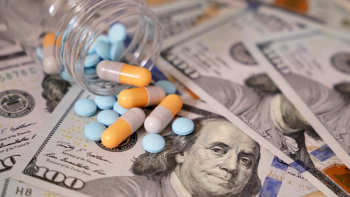
- Pharmaceutical Executive-07-01-2022
- Volume 42
- Issue 7
The True Nature of Danger Behind IP Waiver Proposal
Issue represents a potential threat in fighting future pandemics.
Occasioned by the COVID-19 pandemic, the World Trade Organization (WTO) has been considering a proposal by South Africa and Brazil to empower member states to impose a waiver of intellectual property (IP) rights “related” to vaccines (and likely antiviral therapeutics, diagnostics, and perhaps preventatives). The uncertainty of the scope of the waiver is a consequence of the proposed language, which remains undefined as the agreement is negotiated by WTO member governments, principally the US, EU, China, and South Africa/Brazil.
The details of COVID vaccine production have been set out in various news sources,1 but these are not disclosed in the detail necessary for commercial production. Most of the “know-how” necessary to implement actual vaccine production involves trade secrets, many of which are not limited to COVID vaccines (for example, producing the lipid nanoparticles in which mRNA vaccines are encapsulated). It is unlikely that most of the countries in favor of the waiver (except India and South Africa) have the technological infrastructure for producing the vaccine. Thus, in the short term, the waiver can be expected to do little to solve the actual problem of vaccinating the world.
Recently, the Biotechnology Innovation Organization (BIO) provided a
Even as patents involved in COVID vaccine preparation are granted, the disclosure needed to reproduce these vaccines is protected by trade secrets. Under the terms of the proposed waiver, the question will be whether the US will compel disclosure of trade secrets owned by US companies or that have disclosed them in confidence to the extent such secrets are part of regulatory filings. The administration’s public position raises the likelihood of an infringement on private property unprecedented in the US.
The efforts being applied globally to develop vaccines, treatments, and better tests and technology in response to COVID have been impressive. IP protection has played an important role in these efforts. Past experience and recent developments suggest that protecting IP for vaccines, therapies, and technologies to fight COVID has had and could continue to have a positive impact and advance the cause of eradicating, or at least treating and preventing, this disease. It would be foolish to ignore these contributions by reducing their effectiveness with the proposed waiver, particularly when the precise scope (with regard to trade secret aspects at least) is either undefined or effectively unlimited. The pandemic has produced a great deal of anxiety about what happens “the next time” there is a pandemic. This waiver raises the very real possibility that we will be less likely to be able to face such a future challenge because those with the capacity, incentive, and economic wherewithal to do so will have left the field to pursue other opportunities.
After this article was written and placed into production, the World Trade Organization approved a modified version of a COVID-19 vaccine IP waiver.
Kevin E. Noonan, PhD, Partner with IP law firm MBHB and the co-chair of its biotechnology and pharmaceuticals practice group
Reference
- See, e.g., Neuberg et al., “Exploring the Supply Chain of the Pfizer/BioNTech and Moderna COVID-19 Vaccines”; Weiss et al., “A COVID-19 Vaccine Life Cycle: From DNA to Doses,” USA Today, Feb. 7, 2021; King, “Why Manufacturing Covid Vaccine to at Scale Is Hard,” Chemistry World, March 23, 2021; Cott et al., “How Pfizer Makes Its Covid-19 Vaccine,” New York Times, April 28, 2021.
Articles in this issue
over 3 years ago
Cracking Down on Speaker Programsover 3 years ago
Dynamic Compliance: The Best Defense for Pharmaover 3 years ago
Breaking Down Barriersover 3 years ago
Biotech Performance Glance—and Promising Ripples for Recoveryover 3 years ago
If Non-Formulary Hospital, Price May Not Be the Rxover 3 years ago
When It Comes To DE&I, Silence Is Deafeningover 3 years ago
Asia’s Rise in The Global Pharma Industryover 3 years ago
Rewriting European Regulations on Rare Disease TreatmentsNewsletter
Lead with insight with the Pharmaceutical Executive newsletter, featuring strategic analysis, leadership trends, and market intelligence for biopharma decision-makers.




